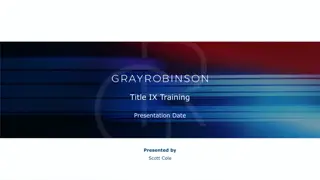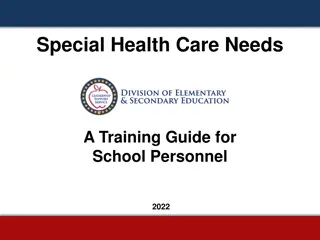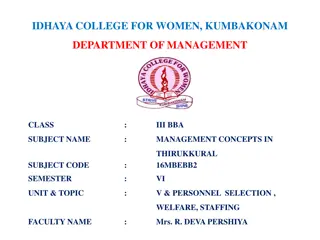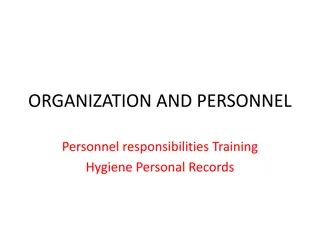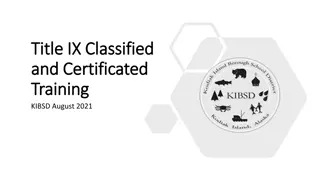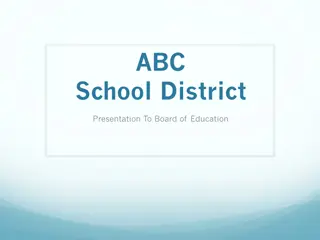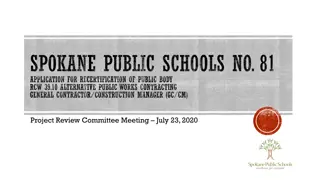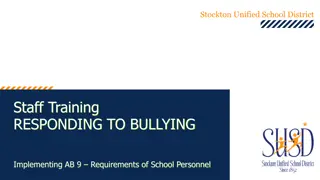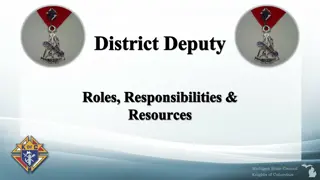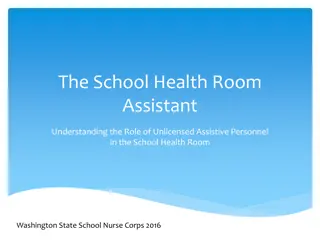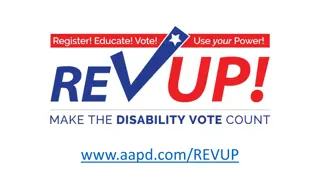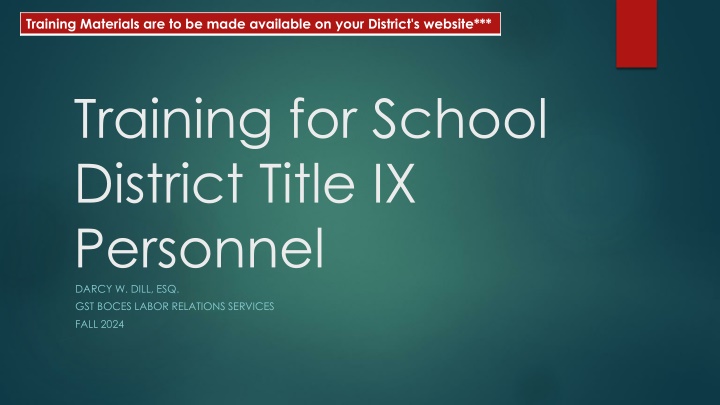
Title IX Training and Compliance Requirements
Access training materials and learn about Title IX, the federal law prohibiting sex-based discrimination in educational programs. Explore the application of Title IX, its intersection with other laws/policies, scope of protections, and definitions of sex-based harassment.
Download Presentation

Please find below an Image/Link to download the presentation.
The content on the website is provided AS IS for your information and personal use only. It may not be sold, licensed, or shared on other websites without obtaining consent from the author. If you encounter any issues during the download, it is possible that the publisher has removed the file from their server.
You are allowed to download the files provided on this website for personal or commercial use, subject to the condition that they are used lawfully. All files are the property of their respective owners.
The content on the website is provided AS IS for your information and personal use only. It may not be sold, licensed, or shared on other websites without obtaining consent from the author.
E N D
Presentation Transcript
Training Materials are to be made available on your District's website*** Training for School District Title IX Personnel DARCY W. DILL, ESQ. GST BOCES LABOR RELATIONS SERVICES FALL 2024
Introduction to Title IX Title IX of the Education Amendments of 1972 provides, in part, that: no person in the United States shall, on the basis of sex, be excluded from participation in, be denied the benefits of, or be subjected to discrimination under any education program or activity receiving Federal financial assistance. . . . 20 U.S.C. 1681(a) What it prohibits: funded at all levels Discrimination based on sex in ALL educational programs and activities that are federally What it does: Protects both students and staff from being effectively denied access to educational program or activities because of harassment or discrimination Application of Title IX (it is more than sports): Recruitment Admissions Counseling Athletics Benefits, Opportunities Discipline and employment Sex-based harassment
Title IX - Intersection with other laws/policies Remember School Districts also must comply with other laws and district policies Violation of Title IX may not be found, but there may be violations of: NYS DASA (students protected from harassment, bullying, and discrimination in school) offers broad protection NYS Human Rights law (applicable to staff and students) o More protective in some ways (standard to find violation is if substantially impairs education or employment) Title VII (applicable to staff) Federal law Codes of Conduct
Scope of Protections Title IX prohibits discrimination on the basis of sex and includes discrimination on the basis of sex stereotypes, sex characteristics, pregnancy or related conditions, sexual orientation and gender identity. Educational Programs and Activities include: school-sponsored activities school approved and/or funded activities or programs school-sponsored or approved travel locations or activities that are under substantial control of the school district Conduct that is subject to the recipient s disciplinary authority in the United States, but Recipient is obligated to address sex-based hostile environment under its education program or activity if some conduct alleged to be contributing to the hostile environment occurred outside of the education program or activity or outside the United States
What is Sex-based Harassment under Title IX? Sex-based Harassment defined Sex-based harassment is a prohibited form of sex discrimination and means sexual harassment and other harassment on the basis of sex, including following: Quid pro quo harassment. An employee, agent, or other person authorized by the school to provide an aid, benefit, or service under the school s educational program or activity explicitly or impliedly conditioned the provision of such aid, benefit, or service on person s participation in unwelcome sexual conduct; or 1) Hostile environment harassment. subjectively and objectively offensive and is so severe or pervasive that it limits or denies a person s ability to participate in or benefit from the recipient s education program or activity. Fact specific inquiry that considers: Unwelcome sex-based conduct that, based on the totality of circumstances, is 2) i) degree to which conduct affected complainant s ability to access education program or activity; ii) type, frequency, and duration of conduct; iii) parties ages, roles at school, previous interactions, and other factors about each party; iv) location of the conduct and context to which conduct occurred; AND v) other sex-based harassment in school s education program or activity Specific offenses, including sexual assault, dating violence, domestic violence, or stalking (definitions at 34 CFR 106.2) 3)
Title IX Personnel and Responsibilities Title IX Coordinator Responsible for coordinating school s compliance with Title IX and Part 106 (regulations) Must monitor and address barriers to reporting information about conduct that reasonably may constitute sex discrimination Required to take following actions to promptly and effectively end sex discrimination and prevent recurrence and remedy effects when notified of conduct that reasonably may constitute sex discrimination (not necessarily a complaint) 1) Treat complainant and respondent equitably 2) Offer and coordinate supportive measures to complainant (and for respondent if grievance procedures initiated) 3) Provide Notices. Notify Complainant or reporter of grievance process and informal resolution process, if applicable. Notify Respondent of grievance process if complaint made, 4) Receive/respond to complaints and respond by initiating grievance process
Title IX Personnel and Roles Title IX Coordinator continued 5) Determine whether/not to initiate complaint per grievance procedures based on factual determination and considering factors*. After factors considered, MAY initiate complaint determining that alleged conduct presents a imminent and serious threat to the health and safety of complainant/other person or alleged conduct prevents ensuring equal access on basis of sex in EPA. 6) If Coordinator initiated complaint, notify Complainant before doing so and discuss safety concerns and provide supportive measures to Complainant 7) If sex discrimination occurred, coordinate and implement remedies and sanctions on Respondent with notice to both parties and take other appropriate prompt and effective steps to ensure sex discrimination not continue or recur in school s education program or activity NOTE: Title IX Coordinator is NOT required to act (1-7 above) if reasonably determines that alleged conduct could not constitute sex discrimination under Title IX or Part 106. Implement determination of decision maker Title IX Coordinator can also be investigator or decision maker
Title IX Personnel and Roles Investigators Promptly investigate allegation of sex discrimination under Title IX Collects relevant evidence Provide equal opportunity to parties to present facts, witnesses, inculpatory or exculpatory evidence Provide each party equal opportunity to party to access relevant evidence collected and/or provides description of the evidence with opportunity to access Provide each party the opportunity to respond to the evidence or description of the evidence (no timeline) Fairly summarizes relevant evidence in investigatory report (no requirement for written report/no timeline, but best practice see grievance procedure) Investigator can also be the Title IX Coordinator or decision maker Decision-Makers Objectively evaluates all relevant evidence that is not otherwise impermissible, including inculpatory and exculpatory evidence Has ability to question parties and witnesses to assess credibility if credibility is in dispute and relevant to the evaluation as to whether/not sex discrimination occurred Prepares notice of determination with rationale and procedures/permissible bases for appeal and submits to the parties
Title IX Personnel - Mandatory Expectations Expectations of ALL Title IX Personnel Must serve impartially and maintain equity among parties No conflicts of interest E.g. relationships of friendships; personal benefit to be derived from acting in official capacity; confidential information on one party; financial interest No bias Human reaction mostly unconscious. Prejudice or preference in favor or against one thing; a lack of objectivity; notions or ideas going into a matter E.g. having common connections or interest; expressing these commonalities No sex stereotypes Avoid prejudgment of facts at issue
District Title IX policy and non-discrimination statement required Updated Title IX policies must be implemented with mandated requirements: Designate Title IX Coordinator with roles/responsibilities Defines sex-based harassment Process for responding to complaint (grievance procedures) with range of supportive measures and potential sanctions if respondent found responsible (for sex-based harassment) Training requirements Potential sanctions to be imposed when affirmative finding of sex-based harassment Evidentiary Standard of preponderance of evidence (or clear and convincing if like-proceeding) Publish a notice of nondiscrimination containing: Statement that school does not discriminate on the basis of sex and prohibits sex discrimination Statement that inquiries regarding Title IX may be referred to Title IX Coordinator or Office of Civil Rights or both Name/title, office address, email address, and telephone number of the Title IX Coordinator How to locate the school s nondiscrimination policy and grievance procedures How to report information about conduct that may constitute sex discrimination and how to make a complaint Publish on website AND each handbook, catalog, announcement, bulletin, and application form that makes available to students/parents/guardians/authorized legal representatives/employees/unions and professional organizations holding CBAs or are used in recruitment of employees
When are schools required to act? What is the Burden of Proof? GENERAL RULE: Must respond promptly and effectively if knowledge of conduct that may reasonably constitute sex discrimination in the education program or activity Without complaint/ no grievance procedures initiated still obligations (see above) With complaint full grievance procedures followed All employees who are not confidential must notify Title IX Coordinator when they have information about conduct that reasonably may constitute sex discrimination under Title IX Title IX Coordinator in receipt of an allegation can decide to not take further actions if reasonably determines alleged conduct could not constitute sex discrimination or can act (see above) Burden of Proof in determining if sex discrimination has occurred pursuant to your Title IX non-discrimination policy/grievance procedures: Default: Preponderance of the Evidence Standard (51%+) But: Clear and Convincing Evidence (more rigorous high probability of truth ) if like proceedings not applicable to districts in NYS
Supportive Measures Supportive measures are individualized measures offered as appropriate, as reasonably available, without unreasonably burdening a complainant or respondent, not for punitive or disciplinary reasons, and without fee or charge to the complainant or respondent to (1)restore or preserve that party s access to recipient s education program or activity, including measures that are designed to protect the safety of the parties or the recipient s educational environment; or 2) to provide support during the grievance procedures or informal resolution process. Examples of supportive measures may include: Counseling; deadline extensions and course adjustments; modified class schedules; escort services; restrictions on contact applied to one or more parties; leaves of absence; changes in class, work, housing or extracurricular or any other activity, regardless of whether there is or is not a comparable alternative; and training and education programs related to sex-based harassment. Any supportive measure must not unreasonably burden either party and must not impose measures for punitive or disciplinary reasons School may modify or terminate supportive measures at conclusion of grievance procedure or continue beyond that point Complainant or Respondent may seek modification or reversals of decision to provide, deny, or terminate supportive measures from an impartial employee School must not disclose information about any supportive measures to persons other than the person to whom they apply (including between the parties) unless necessary to provide the supportive measure or restore access to the education program or activity If a party is a student with disabilities, ensure IEP compliance and IDEA rights secured
Emergency Removals Presumption that Respondent is not responsible for alleged sex discrimination BUT School can remove a Respondent from an educational program or activity, provided that an individualized safety and risk analysis occurs and there is a determination of imminent and serious threat to the health or safety of a complainant or any student, employees, or other persons arising from allegations of sex discrimination justifies removal AND The Respondent was notified and had an opportunity to challenge the decision immediately following their removal.
Responding to Allegations of Sex Discrimination What is a complaint? An oral or written request to the recipient that can be objectively understood as a request to investigate and make a determination about alleged sexual discrimination Who makes a complaint? - A complainant is a student/employee who has alleged to have been subjected to conduct that could constitute sex discrimination or other person . . . and who was participating or attempting to participate in a school s education program or activity at the time of the alleged sex discrimination - A parent/guardian/authorized legal representative - Title IX Coordinator - Any student/employee or any person who participating/attempting to participate in education program/activity when allegation is NOT sex-based harassment How is a complaint made? - Written request or verbal request with Title IX Coordinator or to any employee - Title IX Coordinator can consider allegation and initiate grievance procedure on own Regardless of whether grievance process initiated, Title IX Coordinator must: Offer supportive measures to complainant Notify complainant/reporter of grievance procedures or informal resolution process (if applicable) Still do an investigation, as other laws/policies still in play (e.g. New York State Human Rights law, DASA, Title VII, Codes of Conduct)
When to Act Initiating Grievance Procedures Grievance procedures for resolution of sex discrimination complaints are initiated when: A complaint is received. No formal document; any oral or written request to school that can be objectively understood as a request to investigate and make a determination about sex discrimination is all that is necessary. Title IX Coordinator may receive information/allegation and initiate grievance process
Grievance Procedures Adopted by your School Reasonably prompt timeframes to equitably resolve complaints There is a presumption that Respondent is not responsible for allegations of sexual discrimination until determination is made at the end of the grievance process Principles that must be followed: Treat parties equitably Gather relevant evidence Provide supportive measures to BOTH parties throughout Standard of Evidence Presume Respondent is not responsible until final determination is made School has taken steps to protect privacy of parties, witnesses during grievance procedures BUT not restrict either party from obtaining/presenting evidence, consulting family or confidential resources or preparing or participating in the grievance procedures
First Step: Start an Investigation Notice #1 goes out to BOTH Complainant and Respondent Explaining grievance procedures Containing sufficient information, including: Identities of parties involved Conduct alleged to be sex discrimination Dates/location of alleged sex discrimination Statement that respondent is presumed not responsible Statement that retaliation is prohibited Statement that the parties have an equal opportunity to assess relevant and not otherwise impermissible evidence or a description of the evidence. If description of evidence is provided, indicate parties have a right to assess evidence, upon request. Additional notice must be provided if there are additional allegations of sex discrimination
Investigation Appoint an investigator Investigator to accept and objectively evaluate all relevant evidence (inculpatory and exculpatory) Provide equal opportunity to parties to present facts, witnesses, and evidence Timing: reasonably prompt per grievance procedures Relevant Evidence: Evidence that is related to allegations of sex discrimination under investigation that may aid in showing whether allegations of sex discrimination occurred and may aid decision maker in determining whether sex discrimination occurred. CANNOT INCLUDE: privileged information, parties or witnesses medical records (unless written consent), evidence related to Complainant s prior sexual conduct, unless offered to prove that conduct committed by someone other than respondent
Investigation Best Practices Be prompt, thorough and impartial Review all Title IX policies, other applicable policies, Student Code of Conduct, CBAs, and legal standards (as applicable) to ensure investigative process followed and be aware of policy/standards etc. Review personnel file/student file of complainant and respondent Start with the Complainant and clarify allegations Request and secure any video evidence Request copy of personnel or student file of Complainant and Respondent Interview complainant and all witnesses who, what, where, when, and why Interview Respondent who, what, where, when, and why Respondent s rights Cadet rights, Weingarten rights and Garrity Rights explicitly stated(or get a written waiver if waiving union representation) Do NOT restrict right of parties to ask questions of others; to present own witnesses Parties have right to present their own evidence, but no right to question witnesses.
Next Step: Finalizing Investigation Prepare Summary Investigatory Report Investigatory Report should: Include background information (referral and credential of investigator) Investigative summary with: Initial complaint/statement of allegations Appliable BOE policies etc. Interviews and statements collected Documentary evidence and records Findings Notice #2 to parties by investigator Advise parties that investigation is near complete and that they have opportunity to assess relevant evidence collected or provide parties with a description of such evidence and advise them of the ability to assess evidence, upon request Advise each party that they have the opportunity to respond to evidence or the description of evidence Finalize investigative report and provide evidence collected/report to Decisionmaker
Next Step: Determination by Decisionmaker Decisionmaker may question parties and witnesses to assess credibility if credibility is in dispute and relevant to evaluating whether sex discrimination has occurred Decisionmaker must issue written determination (Notice #3 to parties) Components of Final Decision ( Determination of Responsibility ) Apply standard of evidence (POE) Notice of determination Rationale for determination Provide procedure and detail permissive bases for appeal of determination - - - - E.g. You have the right to appeal the findings of this determination by following the District s Title IX appeal process located in the Board of Education Title IX policy available on our District s website. You have a right to appeal on bases that are detailed in the District s written non-discrimination statement and grievance procedures. If determination was that sex discrimination occurred because complainant/other was limited or denied access to education program or activity, indicate that the Title IX Coordinator is to coordinate and implement remedies for Complainant and sanctions on Respondent with notice to both -
Permissive Dismissals Schools MAY dismiss a complaint that: School is unable to identify respondent after taking reasonable steps to do the same; The respondent is not participating in the school s education program or activity and is not employed by school; Complainant voluntarily withdraws any or all allegations in the complaint and only remaining allegations (if any) do not constitute sex discrimination, even if proven; or School determines that conduct alleged, even if proven, would not constitute sex discrimination under Title IX or Part 106, after reasonable efforts are made to clarify the allegations with the complainant If dismiss complaint, must provide written notice to parties If complaint is dismissed, must provide Complainant of the basis for the dismissal and if dismissal decision is made after notice of allegations provided to Respondent, then notify Respondent of dismissal and basis for same. Provide simultaneous notification in writing. Rights to appeal dismissal
Retaliation Prohibited; Confidentiality Retaliation Prohibited Intimidation, threats, coercion, or discrimination against any person by the recipient, a student, or an employee or other person authorized by the recipient to provide aid, benefit, or service under the recipient's education program or activity, for the purpose of interfering with any right or privilege secured by Title IX or [Part 106]. Confidentiality Supportive measures remain confidential, except as necessary to implement Personally identifiable information recipient must not disclose PII, except when: Prior written consent given Information disclosed to parent/guardian/legal representative to receive disclosure To carry out Part 106 As required by law/regulations If disclosed would not conflict with Title IX
Record Keeping is Required A recipient must maintain for a period of seven years records of: All complaints, records and all documents in connection with the grievance procedure All documents/information provided to the Title IX Coordinator regarding conduct that may reasonably constitute sex discrimination. All documents/materials documenting actions recipient took to meet obligations in responding to sex discrimination All materials used to train Title IX staff. All training materials must be made publicly available on recipient s website

